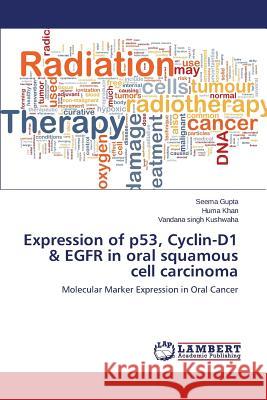Expression of p53, Cyclin-D1 & EGFR in oral squamous cell carcinoma » książka
Expression of p53, Cyclin-D1 & EGFR in oral squamous cell carcinoma
ISBN-13: 9783659672910 / Angielski / Miękka / 2015 / 64 str.
Oral cancer pathogenesis is a complex process involving genetic alteration during multistep carcinogenesis, growth regulation, apoptosis, immortalization, angiogenesis, invasion and metastasis. Molecular markers such as p53, Cyclin-D1 and EGFR regulate cell cycle and play important role in tumor progression and development. The present study evaluates the expressions of these molecular markers & its prognostic significance with treatment response in oral cancer patients undergoing chemoradiation. The strong positive expressions of p53, Cyclin-D1 and EGFR showed significantly lower survival as compared to negative or moderate positive expressions. Hence, expression of p53, Cyclin-D1 and EGFR may serve as a prognostic marker in oral cancer patients.
Oral cancer pathogenesis is a complex process involving genetic alteration during multistep carcinogenesis, growth regulation, apoptosis, immortalization, angiogenesis, invasion and metastasis. Molecular markers such as p53, Cyclin-D1 and EGFR regulate cell cycle and play important role in tumor progression and development. The present study evaluates the expressions of these molecular markers & its prognostic significance with treatment response in oral cancer patients undergoing chemoradiation. The strong positive expressions of p53, Cyclin-D1 and EGFR showed significantly lower survival as compared to negative or moderate positive expressions. Hence, expression of p53, Cyclin-D1 and EGFR may serve as a prognostic marker in oral cancer patients.











